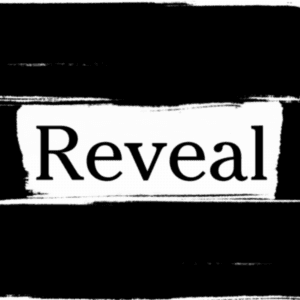Reveal
The Center for Investigative Reporting and PRXReveal’s investigations will inspire, infuriate and inform you. Host Al Letson and an award-winning team of reporters deliver gripping stories about caregivers, advocates for the unhoused, immigrant families, warehouse workers and formerly incarcerated people, fighting to hold the powerful accountable. The New Yorker described Reveal as “a knockout … a pleasure to listen to, even as we seethe.” A winner of multiple Peabody, duPont, Emmy and Murrow awards, Reveal is produced by the nation’s first investigative journalism nonprofit, The Center for Investigative Reporting, and PRX. From unearthing exploitative working conditions to exposing the nation’s racial disparities, there’s always more to the story. Learn more at revealnews.org/learn.
Reveal’s investigations will inspire, infuriate and inform you. Host Al Letson and an award-winning team of reporters deliver gripping stories about caregivers, advocates for the unhoused, immigrant families, warehouse workers and formerly incarcerated people, fighting to hold the powerful accountable. The New Yorker described Reveal as “a knockout … a pleasure to listen to, even as we seethe.” A winner of multiple Peabody, duPont, Emmy and Murrow awards, Reveal is produced by the nation’s first investigative journalism nonprofit, The Center for Investigative Reporting, and PRX. From unearthing exploitative working conditions to exposing the nation’s racial disparities, there’s always more to the story. Learn more at revealnews.org/learn.
How Teaching Kids to Read Went So Wrong
Corinne Adams’ son Charlie came home from school with notes from his teacher saying he was doing great in reading. But during the pandemic, Adams had to give him a reading test at home, and she realized her son couldn’t read. He’d been memorizing books that were read to him, but he didn’t know how to read new words he’d never seen before.
It’s a surprisingly common story. And kids who aren’t on track by the end of first grade are in danger of never becoming good readers. Two-thirds of fourth graders in the United States are not proficient readers. The problem is even worse when you look beyond the average and focus on specific groups of children: 83% of Black fourth graders don’t read proficiently.
American Public Media reporter Emily Hanford digs into a flawed theory that has shaped reading instruction for decades. The theory is that children can learn to read without learning how to sound out words, because there are other strategies they can use to figure out what the words say – strategies like “look at the picture” or “think of a word that makes sense.”
But research by cognitive scientists has demonstrated that readers need to know how to sound out words. And some teacher training programs still emphasize the debunked theory, including books and classroom materials that are popular around the world.
Hanford looks at the work of several authors who are published by the same educational publishing company. One, Lucy Calkins, is a rock star among teachers. Her books and training programs have been wildly popular. Calkins has now decided to rewrite her curriculum in response to “the science of reading.” But other authors are sticking to the idea that children can use other strategies to figure out the words.
This is an update of an episode that originally aired in February 2023. Since then, Teachers College at Columbia University announced that the teacher training project founded by Calkins would be “dissolved.” The word “dissolved” was later removed from the statement, and the college instead characterized the move as a “transition” to ensure its “programs are informed by the latest research and evidence.” Since Sold a Story was first released, at least 22 states have introduced bills to overhaul reading instruction, and several have banned curricula that include cueing strategies.
